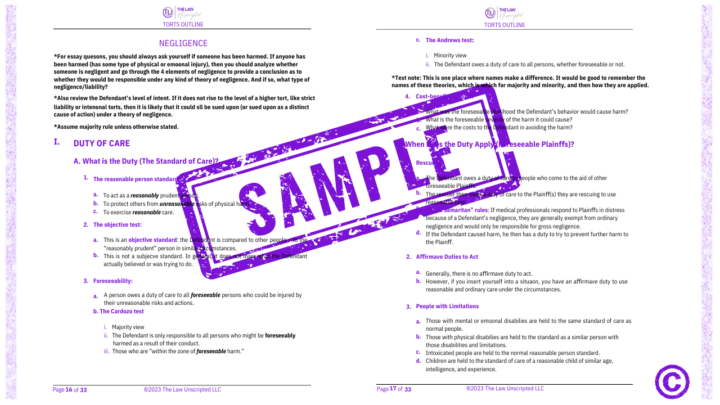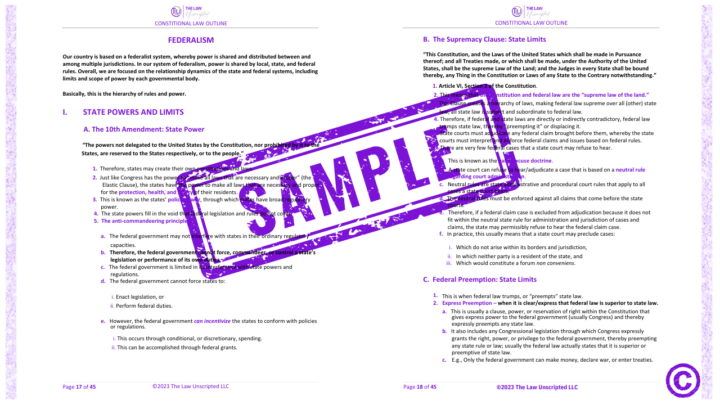Constitutional Law Lecture #1 and #2
Join attorney Virginia Tehrani for a conversational, interesting attack on CONSTITUTIONAL LAW through some general tips and tricks for tackling CON LAW examination questions with real-world examples to help you understand and remember the main premises.
In the first video, learn about the general principles of CONSTITUTIONAL LAW, including the Separation of Powers, Federalism, and the Dormant Commerce Clause. Our attorney, Virginia Tehrani, gives a description of the separation of powers among the Legislative Branch (Article I), the Executive Branch (Article II), and the Judicial Branch (Article III). Next she tackles the concept of Federalism, including the 10th Amendment’s delegation of power to the States, and the limits on States’ power through the Supremacy Clause, federal express and implied preemption, and the Privileges and Immunities Clause. And finally, Virginia explains the Dormant Commerce Clause – also known as the “negative inference or implications of the Commerce Clause.” She discusses the strict scrutiny and rational-basis tests for reviewing state laws that discriminate against other states and citizens, even if they do so as an incidental effect rather than an intentional act of discrimination.
In the second video, learn about the general principles of CONSTITUTIONAL LAW, including Individual Rights and Freedoms. Attorney Virginia Tehrani, walks through the rights and protections afforded to individuals in the Constitution and its Amendments – especially through the Bill of Rights and the 14th Amendment. She highlights the specific prohibitions of state and government actors for violating individual rights, including for Due Process and Equal Protection. Virginia goes on to describe the difference between Substantive Due Process and Procedural Due Process as defined and applied to the state and national governments through the 5th and 14th Amendments, and then she compares and contrasts the Due Process rights with Equal Protection of the laws through the 5th and the 14th Amendments. Finally, Virginia discusses the First Amendment freedoms of religion, speech, press and assembly.
Join Virginia for interesting lectures and great summaries of the basics of CONSTITUTIONAL LAW so that you can ace your law school exams and the Bar Examination!





